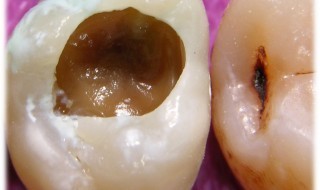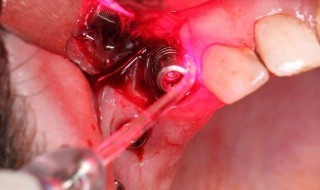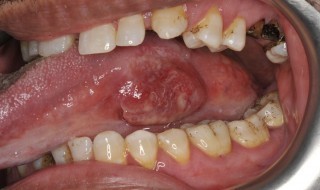Amit Patel reviews the latest Oral-B ‘Up to date’ lectures.
Oral-B has run its ‘Up to date’ lectures throughout the country for some years now. I have attended several of these events and I have to admit they are a must for me. They provide a great opportunity to network and meet up with old colleagues and to acquire new knowledge from some of the world’s most eminent speakers in their specialties.
The event I attended was held in Solihull at the St John’s Hotel. It was very easy to find and an excellent venue; the hosts were very hospitable and the food hearty. There was a very good turn out for the evening with around 200 delegates. Normally the Up to dates have two speakers but this year they had three and all were diverse and very interesting for all.
Minimally invasive restorative dentistry
 The first to present was Professor Avi Banerjee from King’s College London Dental Institute at Guy’s Hospital.
The first to present was Professor Avi Banerjee from King’s College London Dental Institute at Guy’s Hospital.
Avi covered the topic of minimally invasive restorative dentistry with respect to the modern day restorative materials that can be used to restore adhesively, cavitated teeth ravaged by the caries process. I must admit dental materials and the science behind it really did not enthuse me at university but Avi’s lecture was thought-provoking and has changed my opinion.
Of particular interest are the complex nature of the different generations of dental adhesive systems and when clinically they can be used effectively.
Avi presented a large number of clinical cases accompanied by research data, which highlighted the long-term evidence for successful minimally invasive dentistry. He offered the audience practical clinical tips and also showed future developments in this field of ‘biomimetic’ dentistry, which seems very exciting for us as clinicians and for the ultimate benefit for our patients. Even I, as a periodontist who does not do much restorative dentistry, learnt something new that I wanted to implement in my clinical practice.
Periodontology
 After a short break, Professor Iain Chapple from the University of Birmingham took the stage and presented the topic of periodontology. The title of his presentation was ‘Too little, too late: early diagnosis saves teeth…saves lives’.
After a short break, Professor Iain Chapple from the University of Birmingham took the stage and presented the topic of periodontology. The title of his presentation was ‘Too little, too late: early diagnosis saves teeth…saves lives’.
As always, Iain can make any topic in periodontology sound very interesting as he illustrated the importance of early diagnosis of periodontitis and treatment of peri-implant diseases. Iain discussed the importance of probing dental implants as we are seeing more and more dental implants in our patients.
One of myths he dispelled was that it’s essential to probe dental implants just as you would a tooth – it’s the only way you can diagnose early peri-implantitis. He also pointed out that one in every four patients who have dental implants placed will have peri-implantitis somewhere in their mouths, so probing is essential as part of our regular examination. The major risk factors were poor oral hygiene, smoking and a previous history of peri-implantitis.
Iain also discussed how successful periodontal treatment can be for tooth retention and presented 10-year survival data for furcation involved teeth, pointing out that overall 10-year survival rates for furcation involved teeth were higher than for new implants, and their management was more cost effective than new implants. He made the case that implants are not a replacement for teeth, more a replacement for missing teeth, and these two being quite different.
Mouth cancer
 After a refreshment break, Professor Mike Lewis from Cardiff University presented the last leg of the evening’s event. His title was very apt ‘Mouth cancer – size really does matter’.
After a refreshment break, Professor Mike Lewis from Cardiff University presented the last leg of the evening’s event. His title was very apt ‘Mouth cancer – size really does matter’.
Mike is the chair of oral medicine and dean of the school of dentistry in Cardiff. Something that he said during his presentation really made me think; there is only a 50% chance of surviving from mouth cancer five years after diagnosis. This statistic is shocking. One must ask the question why do people smoke, a primary risk factor, when they know this statistic?
We all know that smoking is extremely addictive and a habit that is hard to quit. As clinicians we are in a perfect position to help out patients to cut down or preferably give up completely.
Mike also stressed the importance of ‘early’ diagnosis but emphasising that the size of the lesion at detection (less than 2cm) is more important than how long the cancer has been present. Early intervention is a major factor associated with the success treatment of the disease.
Mike’s presentation included a series of cases where the audience were asked the question; cancer yes or no? This was fascinating as there were some malignant lesions that looked benign, making us realise that if we are not sure clinically, then it is important to refer to eliminate the risk of mouth cancer.
Excellent
The evening was excellent. The topics covered were informative and topical and stimulated a lot of discussion from the audience both during and after the meeting.
Credit should be given to P&G for hosting a first class meeting and not using the occasion to push its own products, but simply support the continuous professional development (CPD) requirements of the profession. I will certainly be attending next years meeting and will be recommending it to others.


